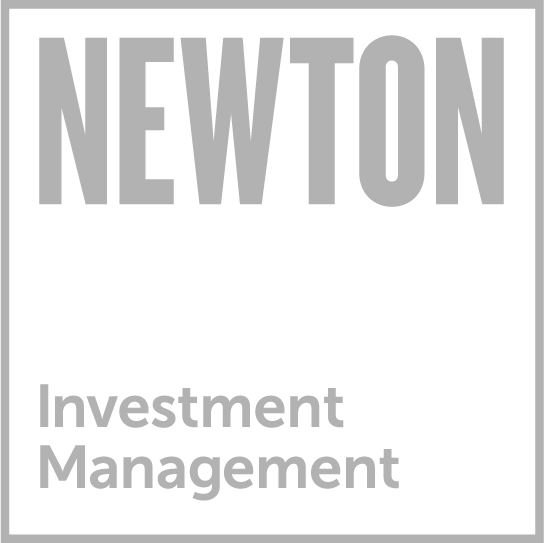For Insight Investment’s head of municipal bonds Dan Rabasco, it’s all about making everything from portfolio management to credit trading come together for clients. Here he reflects on his more than 35 years’ experience in investing.

Dan Rabasco
- Head of Municipal Bonds
- 35 years’ experience
- Joined Insight Investment in 1998
How did you end up pursuing investing as a career?
I had been working as a financial analyst at Liberty Mutual and my wife was involved in the investment business as a portfolio manager. I saw postings for a corporate analyst and a municipal bond analyst within the investment team and asked her what she thought about it. She told me, “go for it,” so I applied for both and was hired as a municipal bond analyst. That was more than 35 years ago and I haven’t looked back since.
What do you like about working in asset management?
I like providing solutions for clients because I feel a deep personal responsibility as an investment professional. I find it satisfying to aim to deliver on their objectives by making sure all the facets of our investment process (portfolio management, credit, trading) come together. We seek to mitigate risks for our clients, whether that’s market risk, portfolio risk, credit risk or trading risk—while taking all the information at our disposal to formulate a strategy and aim to deliver the results they are looking for. It’s the intellectual nature behind making this balance work that really revs me up.
What was your first foray into fixed income?
I sat in a corner in the investment department for three months quietly taking down pricings from broker-dealers on new issues. I would take scale sheets and put down all of the maturities, coupons and yields with a certain type of heading that was required from the prospectus—and I did this for about three months, gradually taking down secondary offerings and reading prospectuses. I found that broker-dealers were a valuable resource because they really helped train me in the beginning. It was 1987 so we didn’t have Bloomberg1 at the time. Instead, we had two big Telerate2 machines where you could see what yields were doing. At the time, most communication with the dealer community was over the phone.
Describe your investment style.
Fundamental credit analysis and identifying relative value are the foundations of our investment style. However, we recognize liquidity can be the biggest challenge in our market depending on supply-and-demand trends. We tend to see a lot of investors reaching for yield when volatility comes down, rates drop and credit spreads tighten. We witnessed this in 2021 leading up to the Federal Reserve’s aggressive tightening regime to tame inflation. When the market backed in 2022 there was a significant dislocation, the minor marginal yield that investors picked up totally dissipated from spreads widening. When volatility is low and spreads are tight, we’re not pushing the credit envelope as we aren’t typically compensated for that risk. But when volatility does pick up and spreads widen, we’re generally well positioned to take advantage of opportunities where others who were reaching may have outflows and redemptions—leading them to potentially sell bonds at cheaper valuations. We focus on buying quality bonds and when the outflow cycle develops, we generally use higher grade bonds as a source of funds to buy yieldier bonds and build yield into the portfolio.
How did you come to work at Insight?
I started at Standish Ayer & Wood in the summer of 1998. The street told me the head of muni bond trading was going to open up while I had been the head of a muni group at another firm. I heard Standish had an unbelievable reputation and that it was collegial, family-oriented and had a great work/life balance. I decided to go for it. In the over 25 years since I joined, we eventually became Mellon. Since then I have worked through several organizational transitions at BNY Mellon, most recently joining Insight in 2021. Insight has a culture very similar to Standish and prides itself in providing clients custom solutions to achieve their objectives.
What past experience outside of portfolio management do you bring to your process?
My parents were always there for my siblings and I, whether it was little league, cub scouts, or band. Even though my father worked full-time, he always made time for family. In contrast, I knew kids who didn’t have the same family time. I’ve brought this mindset with me to the office. When I was in charge of the desk and someone would say they had a family matter to attend to, I would respond, “family comes first”. I try to create a good quality of life in the office by helping to minimize insecurities that people may have surrounding the balance of home and work. I believe this can help them to be a better employee.
What would set off warning bells when looking at a new investment?
One that immediately comes to mind is informational disclosure. You need to have very good disclosure, especially for more marginal credits. I believe that you have to do your due diligence and if you feel they’re not disclosing information that’s critical to your investment decision, just walk away. The downside could be asymmetric. Additionally, you may have a good opinion about a credit but suddenly the market is reacting negatively. I immediately question why they’re doing that. Is it because of outflows or is it something they believe about the credit? That kind of development leads us to ramp up due diligence.
What is it that attracts you to municipal bond investing?
The inefficiency of the market. 57,000 issuers and 1 million issues—that’s the exciting part. From a sector and security selection standpoint, it’s taking advantage of those inefficiencies and constructing portfolios that aim to meet client objectives. Also, our market is retail driven which contributes to the inefficiency. By virtue of being institutional investors, possessing sophisticated credit, risk management and institutional trading capability we can seek to take advantage of the fragmentation and inefficiency of the market when constructing portfolios for clients. This is what draws me toward the municipal bond market.
1. Financial advisory, software, data and stock market information company.
2. Former financial data provider.
Asset allocation and diversification cannot assure a profit or protect against loss in declining markets.
This material has been distributed for informational purposes only and should not be considered as investment advice or a recommendation of any particular investment, strategy, investment manager or account arrangement, and should not serve as a primary basis for investment decisions. Please consult a legal, tax or financial professional in order to determine whether an investment product or service is appropriate for a particular situation. Prospective investors should consult a legal, tax or financial professional in order to determine whether any investment product, strategy or service is appropriate for their particular circumstances. Views expressed are those of the author stated and do not reflect views of other managers or the firm overall. Views are current as of the date of this publication and subject to change. The information is based on current market conditions, which will fluctuate and may be superseded by subsequent market events or for other reasons. References to specific securities, asset classes and financial markets are for illustrative purposes only and are not intended to be and should not be interpreted as recommendations. Information contained herein has been obtained from sources believed to be reliable, but not guaranteed. No part of this material may be reproduced in any form, or referred to in any other publication, without express written permission.
All investments involve risk, including the possible loss of principal.
Certain investments involve greater or unique risks that should be considered along with the objectives, fees, and expenses before investing. Bonds are subject to interest-rate, credit, liquidity, call and market risks, to varying degrees. Generally, all other factors being equal, bond prices are inversely related to interest-rate changes and rate increases can cause price declines. The amount of public information available about municipal securities is generally less than that for corporate equities or bonds. Legislative changes, state and local economic and business developments, may adversely affect the yield and/or value of municipal securities. Other factors include the general conditions of the municipal securities market, the size of the particular offering, maturity of the obligation, and the rating of the issue. Income for national municipal funds may be subject to state and local taxes. Income may be subject to state and local taxes for out-of-state residents. Some income may be subject to the federal alternative minimum tax for certain investors. Capital gains, if any, are taxable.
DEFINITIONS
Fixed income: A type of investment security that pays investors fixed interest payments until its maturity date. Credit market: The market which companies and governments issue debt to investors, such as investment grade bonds, high yield bonds, and short-term commercial paper. Spread: The gap between the bid and the ask price of a security or asset, like a stock or bond. Credit: A contractual agreement in which a borrower receives something of value now and agrees to repay the lender on a later date—generally with interest. Yield: Earnings generated and realized on an investment over a particular period of time, and is expressed in terms of percentage based on the invested amount of the security.
BNY Mellon Investment Management is one of the world’s leading investment management organizations and one of the top U.S. wealth managers, encompassing BNY Mellon’s affiliated investment management firms, wealth management organization and global distribution companies. BNY Mellon is the corporate brand of The Bank of New York Mellon Corporation and may also be used as a generic term to reference the corporation as a whole or its various subsidiaries generally. More information can be found at www.bnymellon.com.
Investment advisory services in North America are provided by Insight North America LLC, a registered investment adviser and regulated by the U.S. Securities and Exchange Commission (SEC). Insight North America LLC is associated with other global investment managers that also (individually and collectively) use the corporate brand Insight Investment and may be referred to as “Insight” or “Insight Investment.”
Insight, Mellon and BNY Mellon Securities Corporation are subsidiaries of BNY Mellon.
© 2023 BNY Mellon Securities Corporation, distributor, 240 Greenwich Street, 9th Floor, New York NY, 10286.
MARK-396544-2023-06-23






